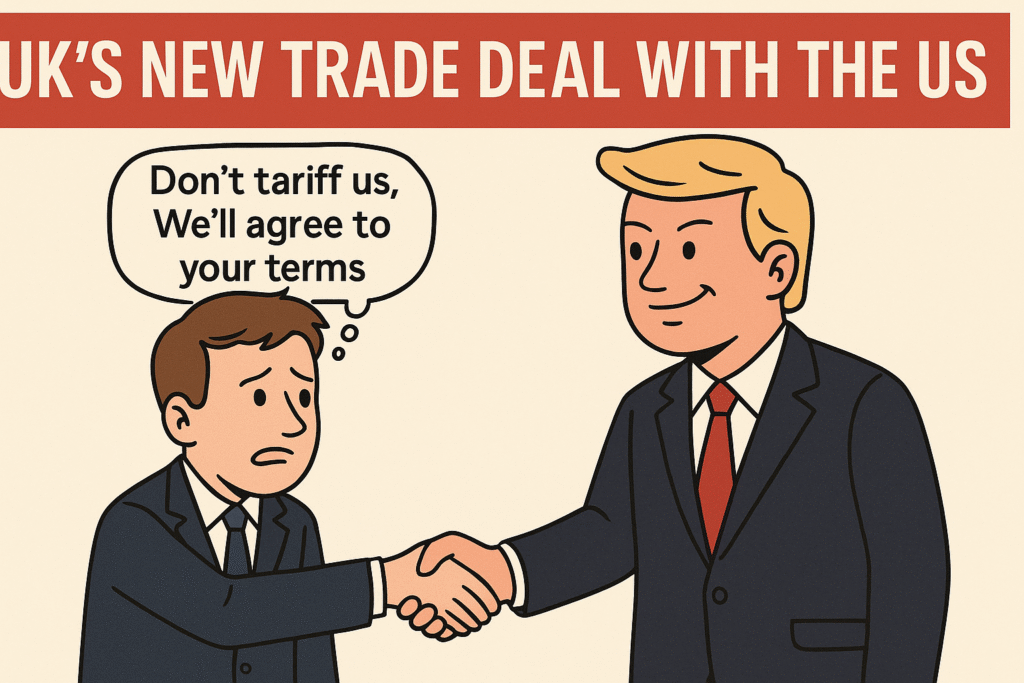The UK and US just made a trade deal so vague, a lawyer joked it had “about the same legal weight as a napkin.” No, seriously.
So what is this deal?
Well… it’s barely a deal. More like a panicked handshake to avoid some Trump-era tariffs on steel and cars.
Imagine paying off a bully just so he doesn’t steal your lunch today — but knowing he’ll probably come back tomorrow.
What’s in the Deal? Not Much.
UK lowered the average Tariffs on US good to 1.8% from 5.1%
- No actual trade document.
- No big benefits for UK exporters.
- Definitely no boost to global trade rules.
The UK didn’t even have much to lose from the original Trump tariffs — it exports way more to the European Uunion than to the US anyway.
So why did the UK rush to say yes?
Politics. Optics. And maybe panic.
This Is Called “Dane-Geld”
Fun historical detour:
Back in the Viking days, English kings would pay off invaders to not attack. This “protection money” was called Dane-geld. But once you start paying the Dane… surprise! You never get rid of him.
That’s the vibe here.
Here’s Why This Is a Problem
- The UK looks weak.
Trump now knows he can twist Britain’s arm again. He’s done it to Canada and Mexico too. - No guarantees.
Trump has a habit of rewriting deals after shaking on them. So this “deal” might vanish faster than your bank balance on Swiggy.
- Global trade rules just got kicked.
The UK is giving special access to US beef and ethanol — without giving the same to others. That breaks the global “most favored nation” rule in trade. WTO may soon knock.
Why Should We Care?
This isn’t just about steel or beef.
It’s about whether global trade is run by rules — or by who can yell the loudest.
The UK once promised to be a champion of free and fair trade. This deal?
It’s like saying you’ll be a marathon runner and then skipping leg day forever.
Conclusion
In trying to dodge Trump’s trade tantrums, the UK may have set a dangerous precedent.
Short-term relief, long-term regret.
This isn’t just a trade deal. It’s a protection payment disguised as diplomacy.
“Isn’t this less of a trade deal and more of a quiet surrender — like saying, ‘You’re the boss, just don’t hurt us’?” What do you think?

